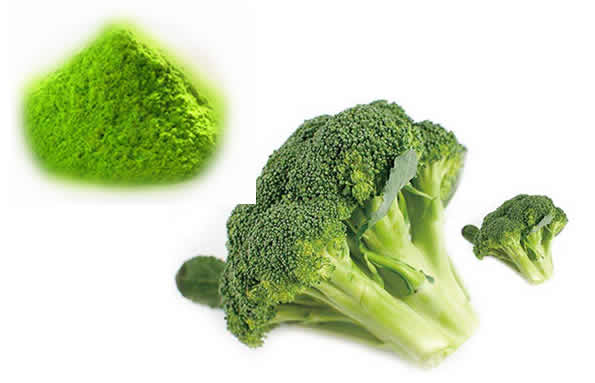[product name]: broccoli extract
[English name]: sulforaphane
[plant source]: it is the seed of Brassica oleracea L. var. botrytis L, a cruciferous plant
[product properties]: brown yellow powder
[product specification]: 10% (this product), 1-98%
[test method]: HPLC
[shelf life]: two years
[package description]: double plastic bag plus cardboard barrel (25kg / barrel)
[broccoli introduction]:

Broccoli may have the most significant effect on cancer prevention and anti-cancer. Broccoli contains more vitamin C, which is higher than Chinese cabbage, tomato and celery, especially in the prevention and treatment of gastric cancer and breast cancer. The results showed that the level of serum selenium in patients with gastric cancer decreased significantly, and the concentration of vitamin C in gastric juice was significantly lower than that in normal people. Broccoli can not only supplement a certain amount of selenium and vitamin C, but also supply abundant carotene, which can prevent the formation of precancerous cells and inhibit the growth of cancer.
[plant form]:
A type of cabbage in Brassicaceae. Its scientific name is Brassica oleracea. The original flower axis and bud are deformed and thickened, forming white and fat flower ball massive inflorescence at the top of stem. The leaves are wide and long, much higher than the flowers. A few days before harvest, the leaves should be tied up to cover the flower ball or broken back cover on the flower ball to prevent the flower ball from fading in the sun. Cauliflower, broccoli (broccoli) and cabbage are all varieties of cabbage. Cauliflower, there are two kinds of white and green, green is also called broccoli, broccoli.
[nutrients]:
The nutritional components in broccoli are not only high, but also comprehensive, mainly including protein, carbohydrate, fat, mineral, vitamin C and carotene. According to the analysis, every 100 grams of fresh broccoli flower balls contain 3.6 grams of protein, three times as much as cauliflower and four times as much as tomatoes. In addition, the content of vitamin A is more than 100 times higher than that of Chinese cabbage, and the mineral composition of broccoli is also very comprehensive. The content of calcium, phosphorus, iron, potassium, zinc and manganese is very rich, which is equivalent to that of Chinese cabbage in Cruciferae.